 Japan : Safety by City
Japan : Safety by City
Japan - safety as a country Osaka is a huge city where you can go sightseeing, enjoy delicious food in many restaurants, experience vivid nightlife.
It is the third-largest city in Japan, with a population of over 2.5 million people and very many tourists.
They are often attracted by the list of reasons including history, culture, and business.
Osaka was briefly the capital of Japan and later continued to play an important role as a hub for Japan.
Osaka remained Japan’s best place to eat, drink and party.
With its carnival-like ambiance, numerous adorable and cheap cafes and souvenir shops, Osaka is a city with extraordinary places that should be on your travel agenda.
Warnings & Dangers in Osaka

OVERALL RISK: LOW
Osaka, as the majority of Japanese cities, is very safe and it is among the safest cities in the world. The overall crime risk is very low.

TRANSPORT & TAXIS RISK: LOW
Taxis in Osaka are safe and you can be sure that the taxi drivers will not try to take advantage of you. In case you want to drive in Japan, you must hold an International Driving Permit and must carry your driving license with you at all times. There is some pickpocket risk in public transport, but not too often.

PICKPOCKETS RISK: MEDIUM
Due to a large number of citizens and the greater number of tourists, Osaka is prone to pickpocketing. It is safe to walk about at night and to travel on public transport as long as you remain watchful and vigilant. The aim of thieves is usually money and your passport, so if it is lost or stolen, you should report this at a police station and get a police report.

NATURAL DISASTERS RISK: HIGH
Osaka region is very prone to natural disasters and the risk of tsunamis, earthquakes, and floods exist all the time. The Japan Meteorological Agency website always shows the latest updated information about the possible natural hazards to warn people.

MUGGING RISK: LOW
Mugging and kidnapping rarely happen in Osaka and the risk level is low. However, some areas are best to be avoided at night, since some personal attacks, including sexual assault and rape, sometimes happen.

TERRORISM RISK: LOW
Even though the Japanese government undertakes various measures for preventing terrorist activity, it cannot be predicted, nor avoided. The attacks did not occur in the recent history of Japan, but you should be aware of the global risk. Terrorist attacks usually occur in public areas, so remain extremely watchful of any suspicious activity around you.

SCAMS RISK: LOW
Be aware of homeless people, follow safety precautions and try to avoid suspiciously looking people. Drink spiking with much higher levels of alcohol is common with the aim of robbing the victim and taking his/her credit card. So you should never accept drinks from strangers and do not leave it unattended for some time.

WOMEN TRAVELERS RISK: LOW
The women's safety risk is low and most visits are trouble-free, but women should still avoid walking alone at night.
So... How Safe Is Osaka Really?
As in any huge city, there are districts to be avoided, particularly Shinsekai and Tobita and the Airin/Kamagasaki area, while there are areas that are completely safe and frequently visited by tourists such as Osaka Castle, Universal Studios Japan, and the Floating Garden.
There are a few things to keep in mind about transportation in Osaka, where some pickpockets might operate and visitors should stay aware of local dangers such as natural hazards and drink spiking.
According to the Japanese people, Osaka is considered a dangerous city.
Nevertheless, the fact that the overall level of crime is as low, foreign travelers will certainly find it less dangerous than many European or U.S cities of that size.
How Does Osaka Compare?
| City | Safety Index |
|---|---|
| Osaka | 79 |
| Kyoto | 83 |
| Tokyo | 80 |
| Hiroshima | 68 |
| Nagasaki | 96 |
| Sapporo | 92 |
| Sendai | 88 |
| Buenos Aires (Argentina) | 60 |
| Vancouver (Canada) | 82 |
| Cordoba (Argentina) | 61 |
| Toronto (Canada) | 81 |
| Melbourne (Australia) | 80 |
| Montreal (Canada) | 81 |
Useful Information

Visas
Visas are not necessary for stays under 90 days, but the citizens of China, Russia, CIS countries, Georgia, and the Philippines are required to have a visa. If you wish to enter Japan for any other purposes, you will need to obtain a visa and contact a Japanese Embassy or Consulate. You should know that visas are not issued after arrival in Japan.

Currency
When in Osaka, make sure that you exchange currency in banks, post offices or some large hotels since they will offer you the best rates. Good exchange rate might also be offered at the international airports in Japan. Japan is mainly a cash society, so there might be a risk that your credit card might not be accepted or ATMs might reject giving you the money. ATMs in convenience stores and shopping centers are available 24 hours a day. The Japanese official currency is the Yen.

Weather
The weather in Japan is generally mild, but the snowfalls during the wintertime are possible. The severe weather is frequent in Japan, so you should prepare in the event of a typhoon. The tropical cyclone season lasts from June to December and the dangers increase when an earthquake occurs shortly after a typhoon.

Airports
The main Osaka airports are Kansai International Airport and Osaka International Airport, also known as Itami Airport. There are even 98 modern airports in Japan.

Travel Insurance
Even though Osaka is a generally safe place, do not start your journey unless you obtain a comprehensive travel insurance policy.
Osaka Weather Averages (Temperatures)
Average High/Low Temperature
| Temperature / Month | Jan | Feb | Mar | Apr | May | Jun | Jul | Aug | Sep | Oct | Nov | Dec |
|---|---|---|---|---|---|---|---|---|---|---|---|---|
| High °C | 9 | 10 | 14 | 20 | 25 | 28 | 32 | 33 | 29 | 23 | 18 | 12 |
| Low °C | 2 | 2 | 5 | 10 | 15 | 20 | 24 | 25 | 21 | 15 | 9 | 4 |
| High °F | 48 | 50 | 57 | 68 | 77 | 82 | 90 | 91 | 84 | 73 | 64 | 54 |
| Low °F | 36 | 36 | 41 | 50 | 59 | 68 | 75 | 77 | 70 | 59 | 48 | 39 |
Japan - Safety by City
| City | Safety Index |
|---|---|
| Hiroshima | 68 |
| Kanazawa | 83 |
| Kyoto | 83 |
| Nagasaki | 96 |
| Nara | 88 |
| Osaka | 79 |
| Sapporo | 92 |
| Sendai | 88 |
| Tokyo | 80 |
| Yokohama | 87 |
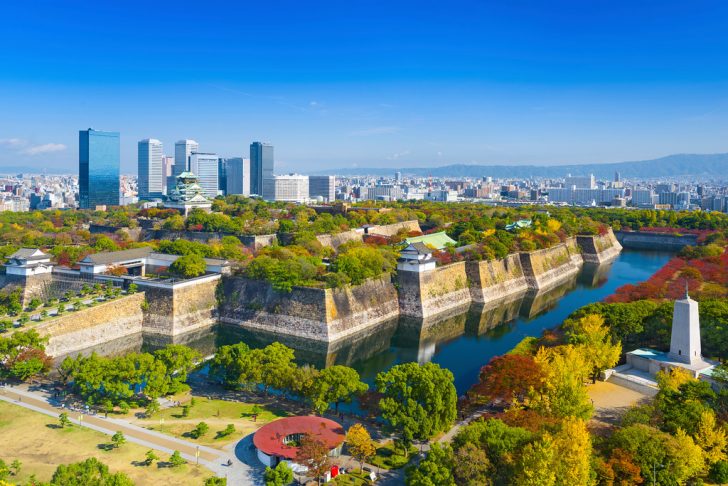
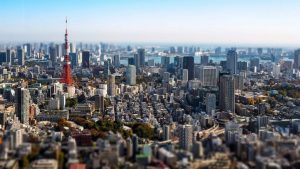
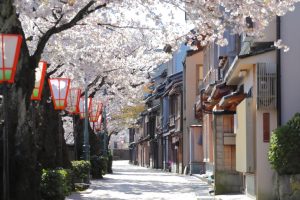
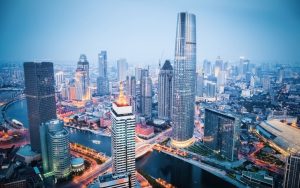
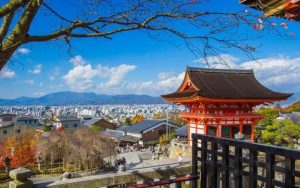
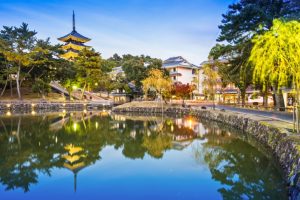
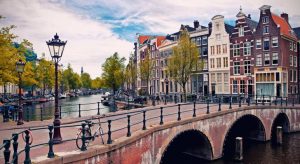





Typhoon
Since the Typhoon came to Tokyo, I suggest not going to Japan whatsoever. There’s a fifty-fifty chance that the typhoon will hit Osaka too. But I don’t guarantee that it will happen. But still, I don’t suggest you to go there, especially when you have children or senior citizens with you.
The Japanese count it as dangerous but since visiting it for 5 days it felt very safe. And it is not common to get your belongings snatched if you lose them.